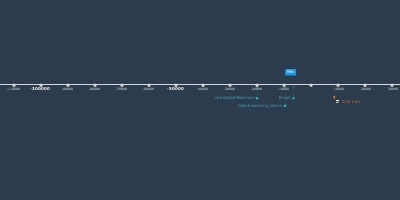About Monuments (jan 1, 4600 BC – jan 1, 2500 BC)
Description:
Chronology: megaliths and other Neolithic monuments- monuments were being built for a very long time; the earliest datings are c. 5000/4600 BC (Britany, France);
famous monuments such as the TRB- hunebedden date c. 3500-3200 BC;
- in general, Megalithic monuments cease to be made in the 3rd millennium BC; from that moment, round earthen burial mounds take over;
- monument building is closely linked to third phase of Neolithisation (4100-2500 BC), when hunters took up farming.
Megalith
= a monument made of very large stones
- monuments were particularly built in western and northern Europe (Ireland, UK, West France, Iberia, northern Netherlands, North Germany and south Scandinavia))
- Many monuments were built as collective graves, there are also enclosures (meeting places for ritual practice: causewayed camps and henges), stone circles and alignments (rows of standing stones such as menhirs)
- Stone monuments also had astronomical functions (aligned on shortest day: Newgrage; or on the longest day: Stonehange)
- Passage tomb/grave (see illustration)
Hunebed (dolmen)
= a megalithic monument from the TRB/ Funnel Beaker Culture. It is a construction of very large stoned covered with an earthen mound (Aldo several variations inc, "passage tombs" exists) - usually only the stones survive (see illustration)
Menhirs
- Standing stones, often places in lines
Causewayed camp
= a ditched enclosure with many entrances. there is evidence that they served as meeting places and that rituals were carried out there.
Cromlech/ stone circles
- standing stones placed in a circle or oval, functioned as meeting places for ritual practices, sometimes they may have had an astronomical function.
- A theory is that the earliest monuments were imitations of farmer's longhouses;
- One theory explains that incipient farmers (succesors of hunter/gatherers) started to make monuments to create locations that last were ancestors could be buried and venerated; ancestors are very important for farmers
Added to timeline:
Date:
jan 1, 4600 BC
jan 1, 2500 BC
~ 2101 years
